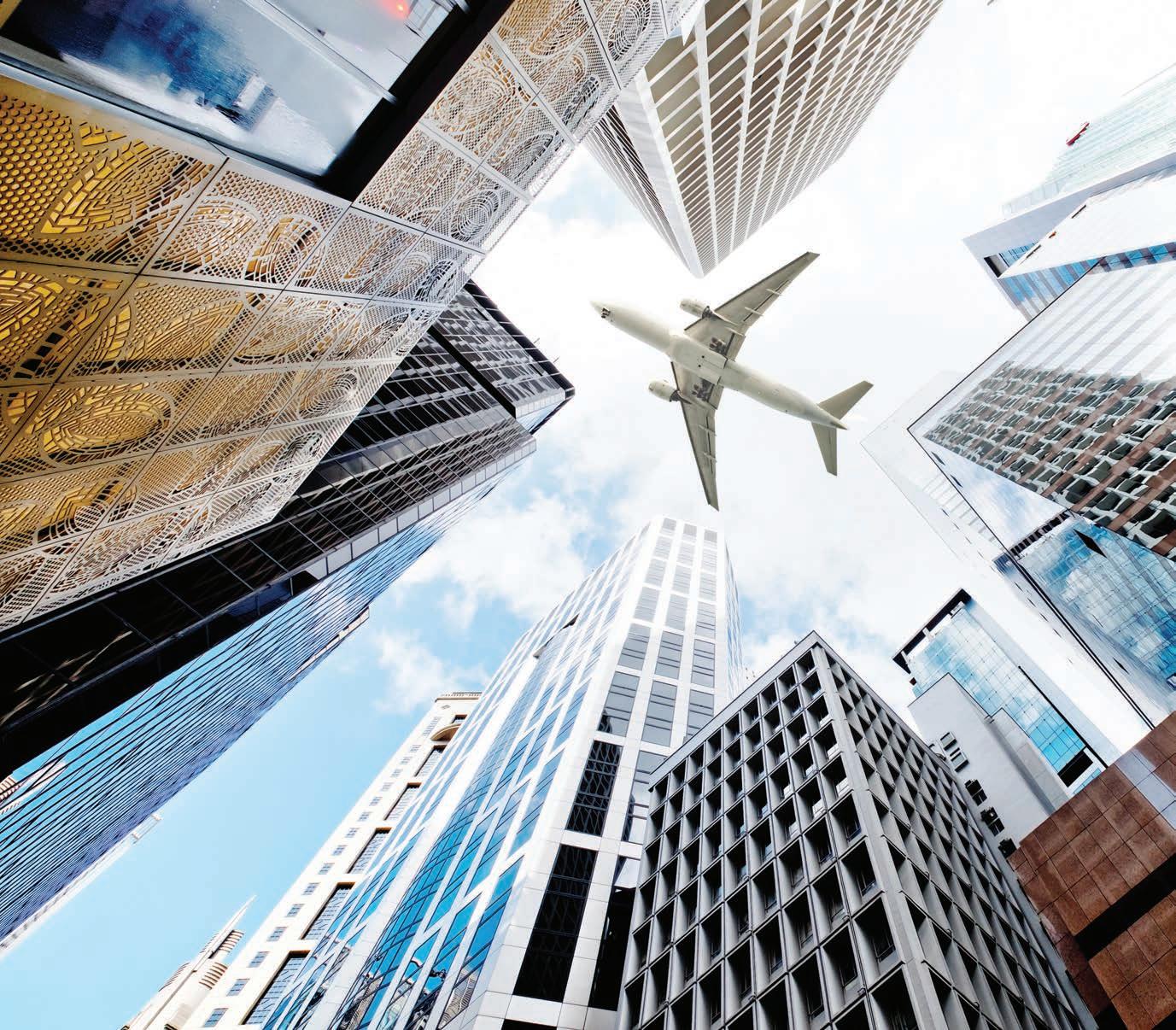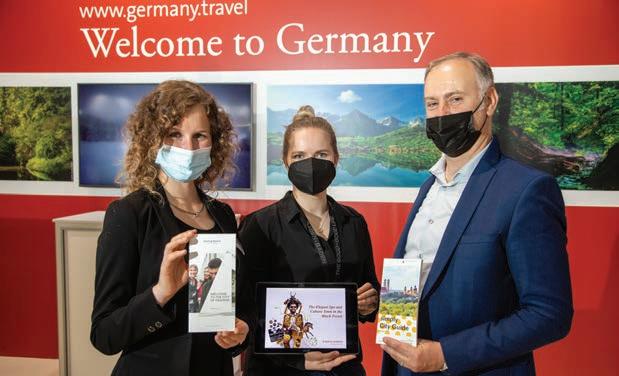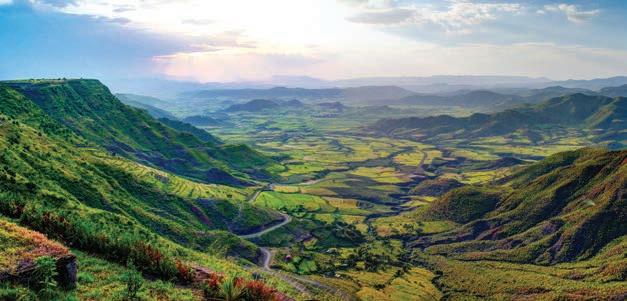
10 minute read
Redefining hospitality
The COVID-19 pandemic has provided the hotel industry with an opportunity to explore new trends and take fresh paths to innovation, all the while delivering on its promise of exceptional experiences
The global hotel industry has a long way to go before it can return to some form of normalcy and reach its pre-pandemic peak. But the region continues to stand out in the cycle of recovery. Recent industry research conducted by STR and Colliers International showed that hotel performance in the Middle East improved consistently in the face of challenges posed by the pandemic.
Advertisement
In the UAE especially, the market surpassed several others around the world. STR data revealed that the UAE recorded an average occupancy of 51.7 percent and an average daily rate (ADR) of US$114. Efforts to control the spread of COVID-19, the ease of restrictions within the country, strong domestic demand and local carriers opening to more destinations aided the industry’s recovery efforts.
A closer look at STR data reveals that some Middle Eastern markets also showed year-over-year growth in the metrics, an uncommon occurrence since the beginning of the pandemic and its impact on the global economy.
For instance, in Abu Dhabi, the hotel industry’s 2020 performance levels closely trailed the pre-pandemic levels of 2019, and on some days, the market showed year-over-year growth. In November 2020 alone, Abu Dhabi posted the UAE’s highest occupancy level of 64.6 percent.
Furthermore, the New Year’s celebrations in Dubai saw hotels running average occupancies of 76 percent
1
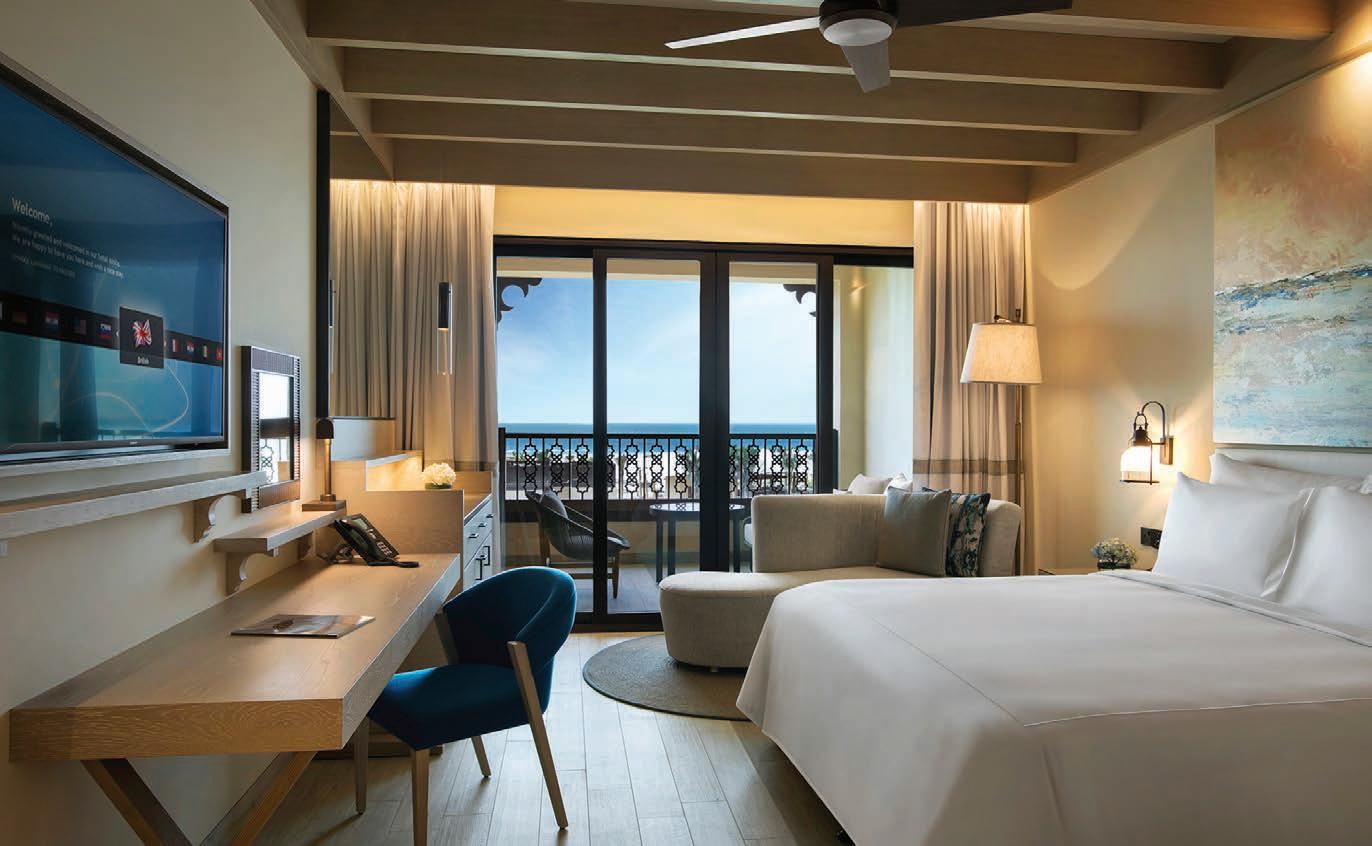
3
1 Wellness travel 2 Saadiyat Rotana Resort & Villas 3 Cashless transactions 4 Guy Hutchinson
4

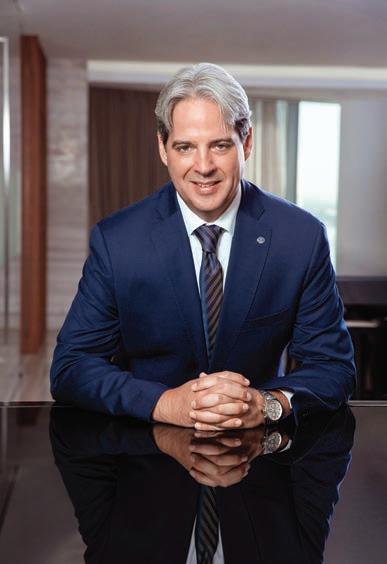
with an ADR of US$300. Meanwhile, in Fujairah and Ras Al Khaimah, the ADR figures rose by seven and one percent respectively, compared to 2019 levels.
Guy Hutchinson, CEO, Rotana Hotels & Resorts, said: “The COVID19 crisis has been one of the toughest experiences on record for the global hospitality industry, with border closures and travel restrictions bringing tourism to a virtual standstill.
“Thanks to the exceptional leadership and measures implemented by the UAE government to control the pandemic coupled with the rigorous national vaccination programme, we are fortunate to see a gradual return to postpandemic numbers. This is far from the case in some international markets.”
More positives can be drawn from a recent YouGov luxury survey, in which more than half (52 percent) of the respondents said that they were planning a domestic holiday or staycation in 2021. So, while signs point to significant recovery this year, industry heavyweights believe that there is much to learn from the pandemic, considering the dramatic changes in travel behaviour and guest attitudes in the “new normal”.
“We have all had to adapt to varying degrees of the new normal and appreciate how the pandemic has fundamentally affected consumer behaviours,” said Hutchinson.
“New habits and expectations have surfaced, spending patterns have changed and the embracing of digital applications and technology has accelerated to new heights. Understanding and responding to these changes has been paramount to the ongoing recovery of our industry.” After the first lockdown in March 2020, local stays created the initial demand in the domestic hotel sector. Even with the world now reopening, this demand continues to rise. Mark Kirby, Head of Hospitality, Emaar Hospitality Group, said: “We are still witnessing a large proportion of residents enjoying staycations, which is great for our industry.”
Capitalising on this staycation trend, hotels across the country have introduced special offers to appeal to residents. At Rotana Hotels & Resorts, Hutchinson said: “We placed special focus on packages that add value for our guests. At the end of last year, we launched an all-inclusive offer for the first time, which was extremely well received within the domestic travel segment.”
Following closely after the demand for staycations, “bleisure” stays or “workations” witnessed a continued growth, which not only catered to residents but also attracted visitors from overseas.
Kirby said: “COVID-19 has completely disrupted the traditional office culture and the hospitality sector has been quick to offer alternative solutions for those looking to combine working from home with leisure time.
“The introduction of the workation concept is not just a novel idea, it’s about making adjustments to meet the new market demands, allowing those who are not currently working from their office to enjoy a luxury hospitality experience whilst continuing their professional commitments.”
Fueling this demand are companies like Facebook, Twitter and Spotify, which announced that employees can work from home indefinitely. This has led many experts to believe that the remote working trend will only increase in popularity, resulting in young professionals, freelancers and entrepreneurial digital nomads choosing hotels as their base while earning their living from a laptop.
To accommodate the needs of the smart working traveller even further, Dubai recently introduced a remote visa programme that will allow visitors to stay in and work remotely from the emirate with access to co-working spaces and government support services.
An increasing number of hotels in the MENA region are taking note of this trend and offering pop-up co-working spaces with the aim of rethinking and making the most of the hotel space.
Hutchinson added: “The key to surviving and excelling in these times is the ability to pivot from traditional models and seize opportunities that are emerging in this evolving landscape.”
THE WELLNESS BOOM
As guests continue to return to hotels, the awareness of the environment they are staying in has heightened. This makes health and safety standards prime factors for consideration while shortlisting a hotel. Hutchinson said: “There are a number of factors to be considered, nonetheless, health and wellbeing have emerged as the most important currency.”
However, when it comes to ensuring their wellbeing, some guests are now looking for more than the hotel’s standards of cleanliness.
5
The two other important factors guests consider when choosing a hotel are what the environment has to offer and the deeper individual need for mental wellbeing.
Paul Gardiner, CEO, Mantis Collection, explained: “An emerging traveller personality type has come to the fore, one who is looking for transformative travel to enrich their experience by getting involved on a deeper level.
“Although wellness has been an important part of the travel experience for some time, the pandemic has certainly accelerated this trend. Wellbeing is very much front of mind, and as more people turn to wellness for both body and mind, an increase in demand is projected for wellness-minded travellers seeking relevant experiences.”
Jonathan Raggett, Managing Director at Red Carnation Hotels, said: “We’ve noticed an increase in socially conscious travels over the past few years and expect this trend to rise even more in the postpandemic world. COVID-19 has seen society reset its priorities with health and wellness now a focus for many.
“Across the world, people are incorporating elements of health, selfactualisation and mindfulness into their daily lives and they expect to be able to continue and enhance these practices even when they are away from home.”
Jeremy McCarthy, Group Director of Spa & Wellness at Mandarin Oriental Hotel Group, believes that the pandemic has led people to develop a “wellness everywhere” mindset. “People no longer wish to simply carve out pockets of wellness in their lives, they want it to be a part of where they live, where they work and where they travel.”
Experts are predicting that, with the distressing events of 2020, travellers will only continue looking for meaningful experiences, wanting to feel good about the money they are spending. Destinations that offer opportunities to enhance wellness will only rise in popularity as the industry moves forward. In the Middle East, hotels have already started implementing strategies to tap into this wellness boom.
At Mandarin Oriental Hotel Group, McCarthy revealed that when the pandemic first disrupted business, the group used this as an opportunity to focus on their employees’ wellbeing.
“We created a four-week wellbeing course for all of our employees worldwide that focused on two core concepts: inner and outer strength. Inner strength because we are facing a period of stress and we need to build up our resilience to be able to move forward proactively in the face of these very challenging circumstances. And outer strength because we need to build up our physical vitality to strengthen our immune systems at such a time.
“We then translated this thinking into programmes for guests in all of our spas and wellness centres worldwide, with experiences that combine inner strength activities, such as meditation, mindfulness, spa treatments and singing bowls, with outer strength activities such as fitness classes, personal training and nutrition.”
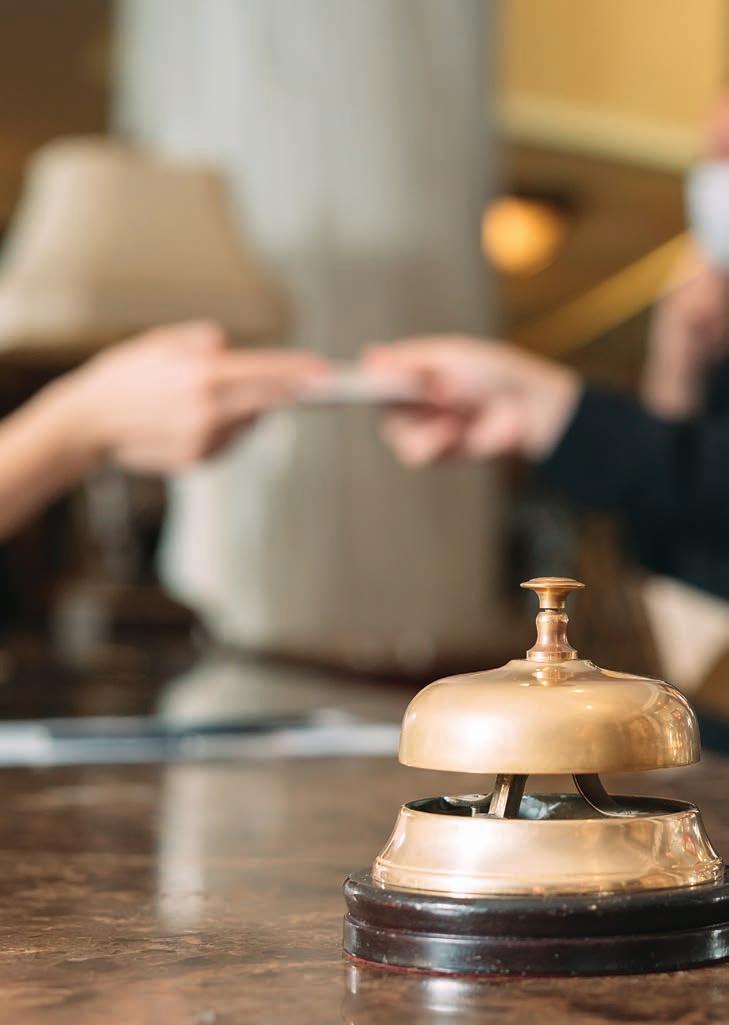
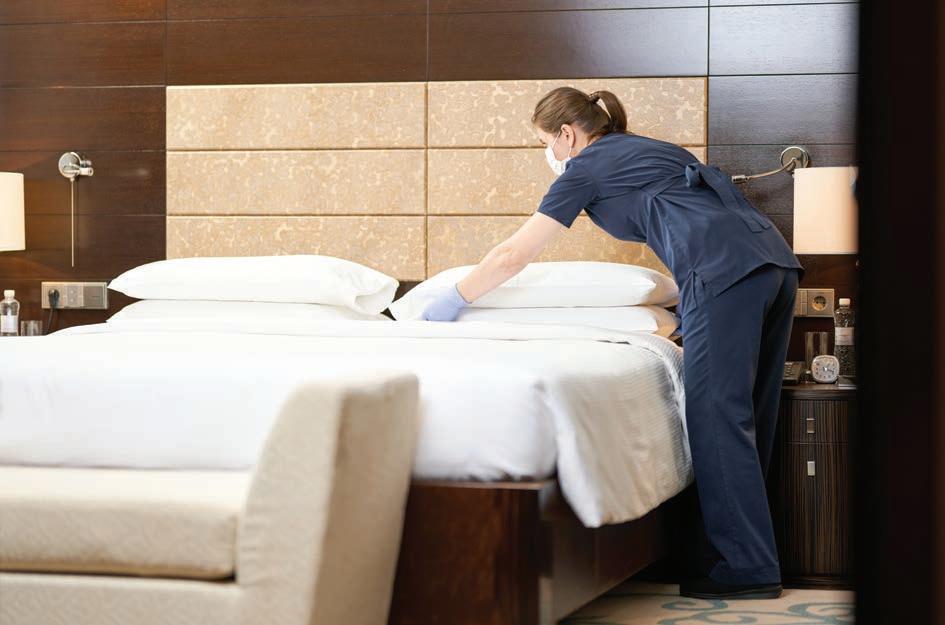
7
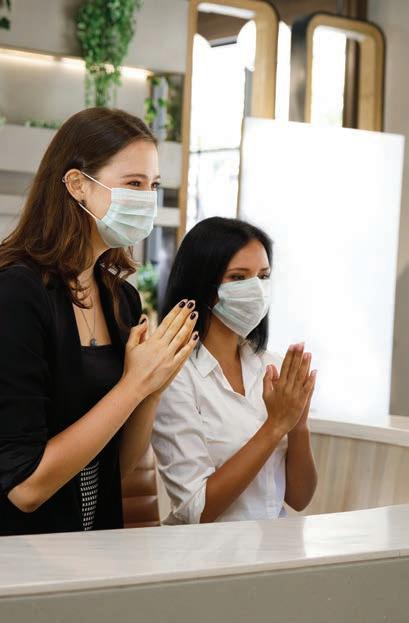
5, 6 & 7 Hospitality in the ‘new normal’ 8 Cashless transactions 9 Mark Kirby
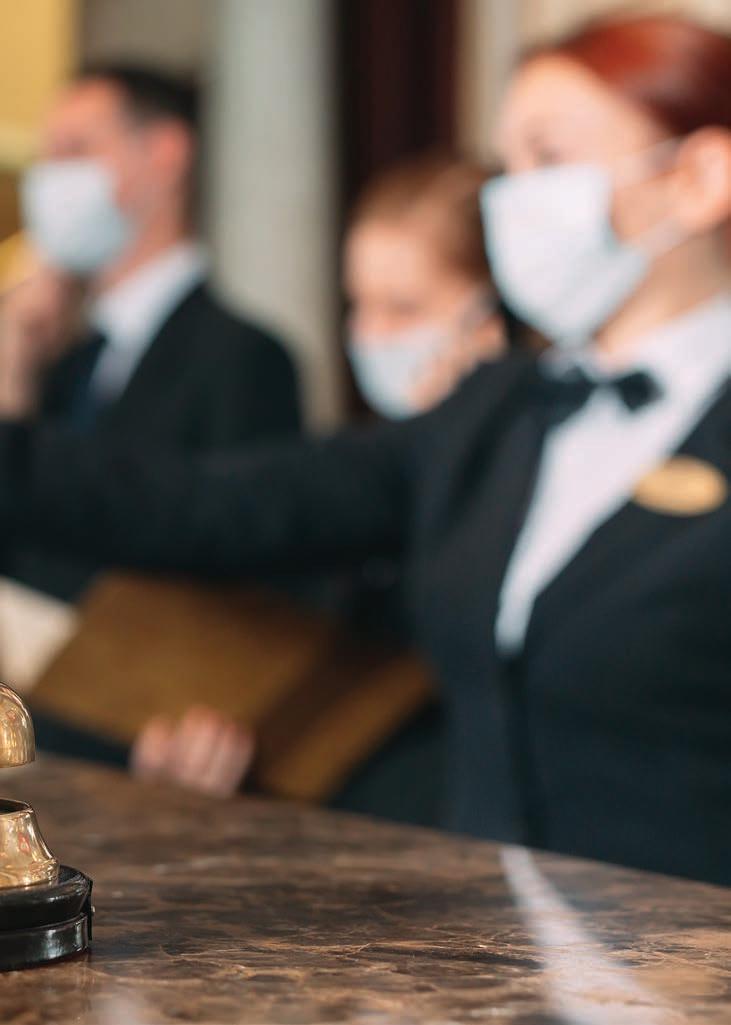
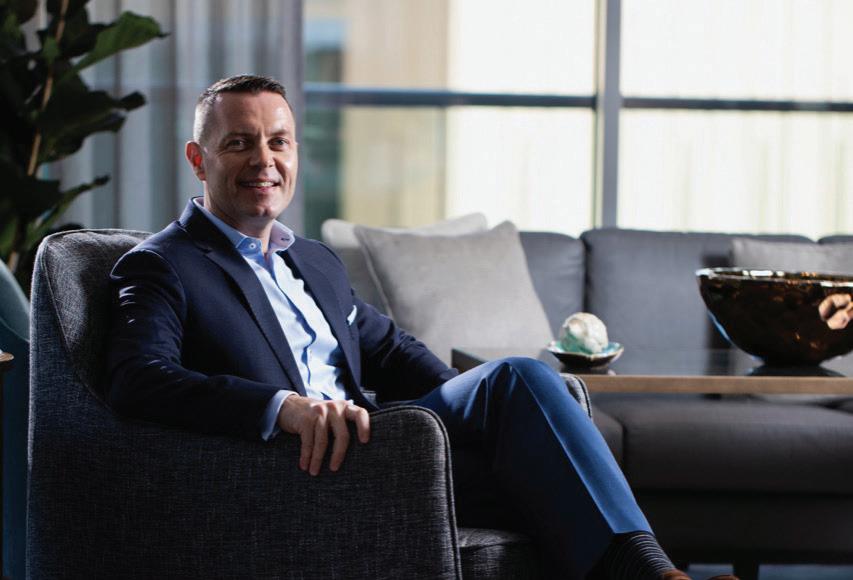

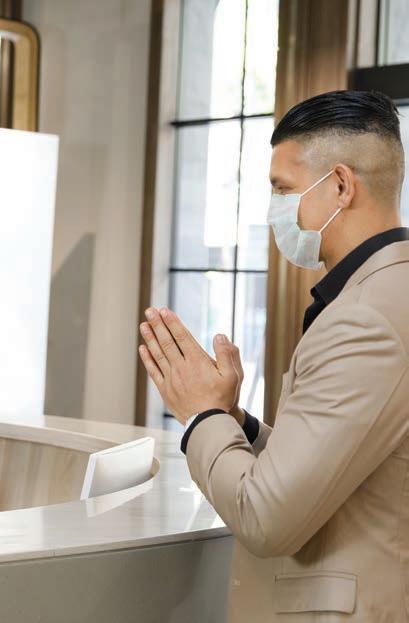
While working on enhancing mental and emotional wellness through such programmes, travellers are also turning to nature for its restorative powers.
Raggett said: “We believe that the pandemic has given many people new respect for the healing power of nature.
“We have always tried to incorporate nature into our wellness offering, from spa gazebos that offer panoramic ocean views to the products we use, which are inspired by the healing properties of African botanicals, Also, the treatments offered have been custom-created to focus on the three pillars of wellness – restoring, calming and purifying.”
At Mantis Collection, Gardiner said: “Our wellness experiences are not typical of a traditional spa. Instead, we like to get our guests immersed in conservation efforts happening around the resort, lodge or hotel. It’s a different kind of wellness, it’s wellness that nourishes the soul. In terms of wellness through nature, we have properties in remote eco-locations in the Serengeti, Lake Kivu in Rwanda, the Kalahari desert and the Costa Rican jungles”
PERSONAL TOUCH PREVAILS
If the pandemic has underscored one key component in the guest’s journey, it’s the reliance on technology. Brands going digital in an attempt to promote a contactless experience for guests is the new norm. Hutchinson said: “From socially distanced checkins to contactless room access and QR code menus in dining outlets, the digitisation of service delivery has taken centre stage in the industry.
“The smartphone has become a vital tool for guest interactions with dedicated apps a necessity for hotel brands that wish to cater to the expectations of travellers.”
Over the last decade, technology has made great strides in this realm and hotel systems have evolved dramatically with several accelerations witnessed during the pandemic. But as technology seamlessly enables social distancing and contactless experiences, it also makes preserving the all-important human touch challenging.
Hutchinson said: “At Rotana, we have adopted a highly cautious approach as we embrace the new normal. While our short-term goal is to inspire a sense of confidence that will allow guests to feel safe during their travels, we also recognise that we are in a business that thrives on human connection and personal touch.
“As such, genuine personal care will continue to define the guest experience at our properties.
“We spend a great deal of time listening to our guests, asking them what they want and responding to their needs. We continually acted on their feedback while reshaping the guest experience in response to the pandemic. From a welcoming yet socially distanced arrival to accommodating individual requests and needs to elevating the dining experience while adhering to local rules and regulations, we aim for the guest journey to be as seamless and enjoyable as possible.
“Our core focus is always to deliver exceptional hospitality whether online or offline in order to realise our brand promise of treasured time for each and every guest.”

